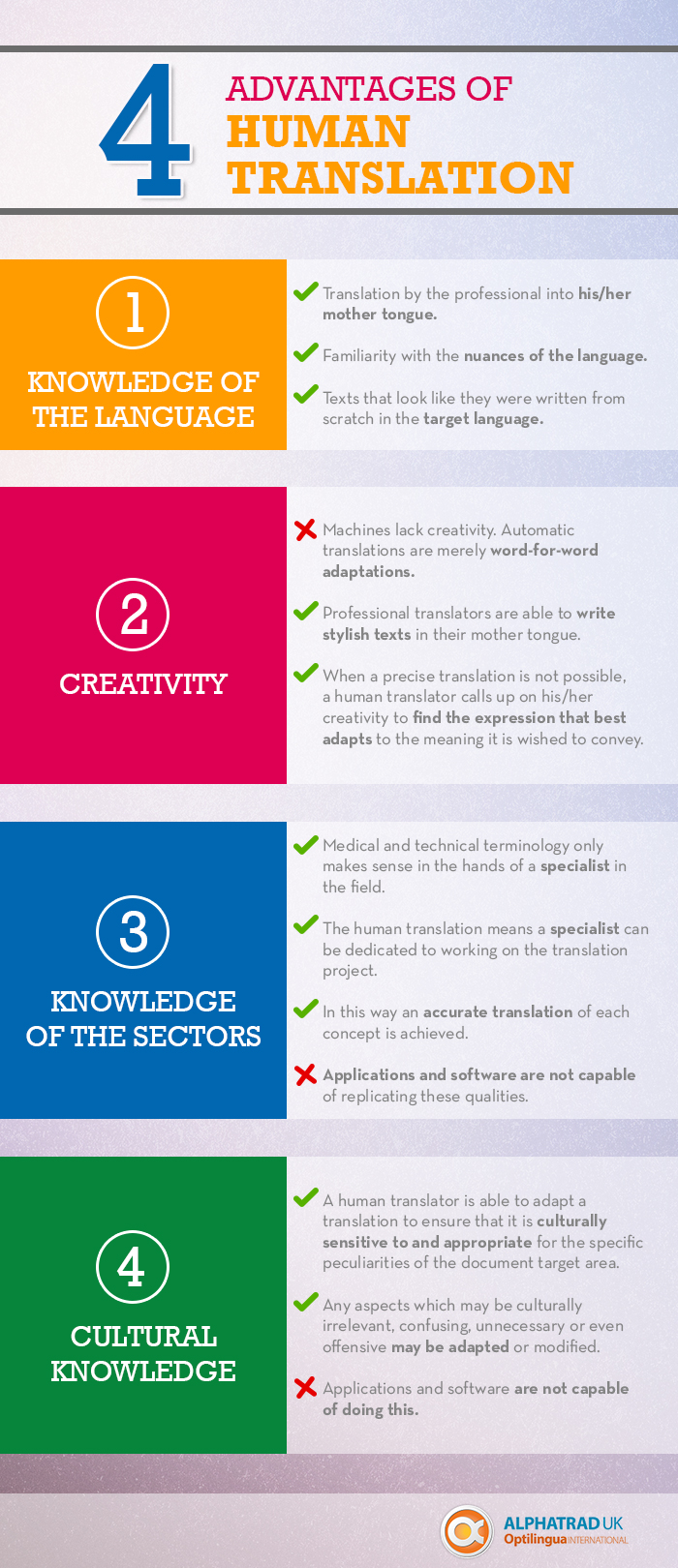
1. KNOWLEDGE OF THE LANGUAGE
- Translation by the professional into his/her mother tongue
- Familiarity with the nuances of the language.
- Texts that look like they were written from scratch in the target language.
2. CREATIVITY
- Machines lack creativity. Automatic translations are merely word-for-word adaptations.
- Professional translators are able to write stylish texts in their mother tongue.
- When a precise translation is not possible, a human translator calls up on his/her creativity to find the expression that best adapts to the meaning it is wished to convey.
3. KNOWLEDGE OF THE SECTORS
- Medical and technical terminology only makes sense in the hands of a specialist in the field.
- The human translation means a specialist can be dedicated to working on the translation project.
- In this way an accurate translation of each concept is achieved.
- Applications and software are not capable of replicating these qualities.
4. CULTURAL KNOWLEDGE
- A human translator is able to adapt a translation to ensure that it is culturally sensitive to and appropriate for the specific peculiarities of the document target area.
- Any aspects which may be culturally irrelevant, confusing, unnecessary or even offensive may be adapted or modified.
- Applications and software are not capable of doing this.
Add new comment